By World Health Organization numbers, one in six people worldwide have a disability. Around the world, the accessible travel industry is working to become more inclusive for people with a wide range of special needs. Myrtle Beach, South Carolina, has created programs for people traveling on the autism spectrum, for example, while Wheel The World specializes in travel planning for people with mobility challenges. Others include Cruise Planners, focused on cruise ships, and Travel For All. Still, accessible travel is a nearly $60 billion market that’s largely untapped, according to the BBC.
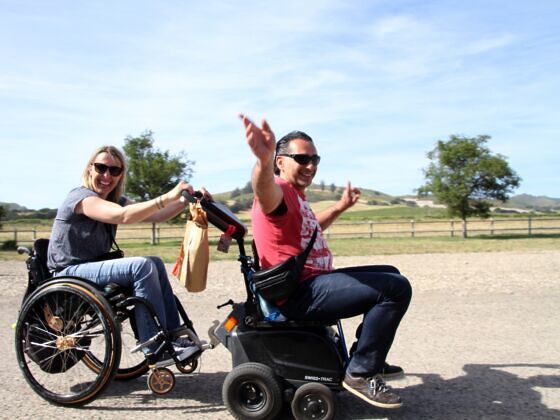

How Tapooz Travel Makes Customized, Accessible Dream Trips Possible for a Wide Range of Needs
Just like any traveler with a specific goal for their trip, there’s no one-size-fits-all formula in accessible travel. That’s particularly true the more specialized the needs are. In many cases, a knowledgable and specialized travel agent who intimately knows the location is the only way to make travel possible and safe.
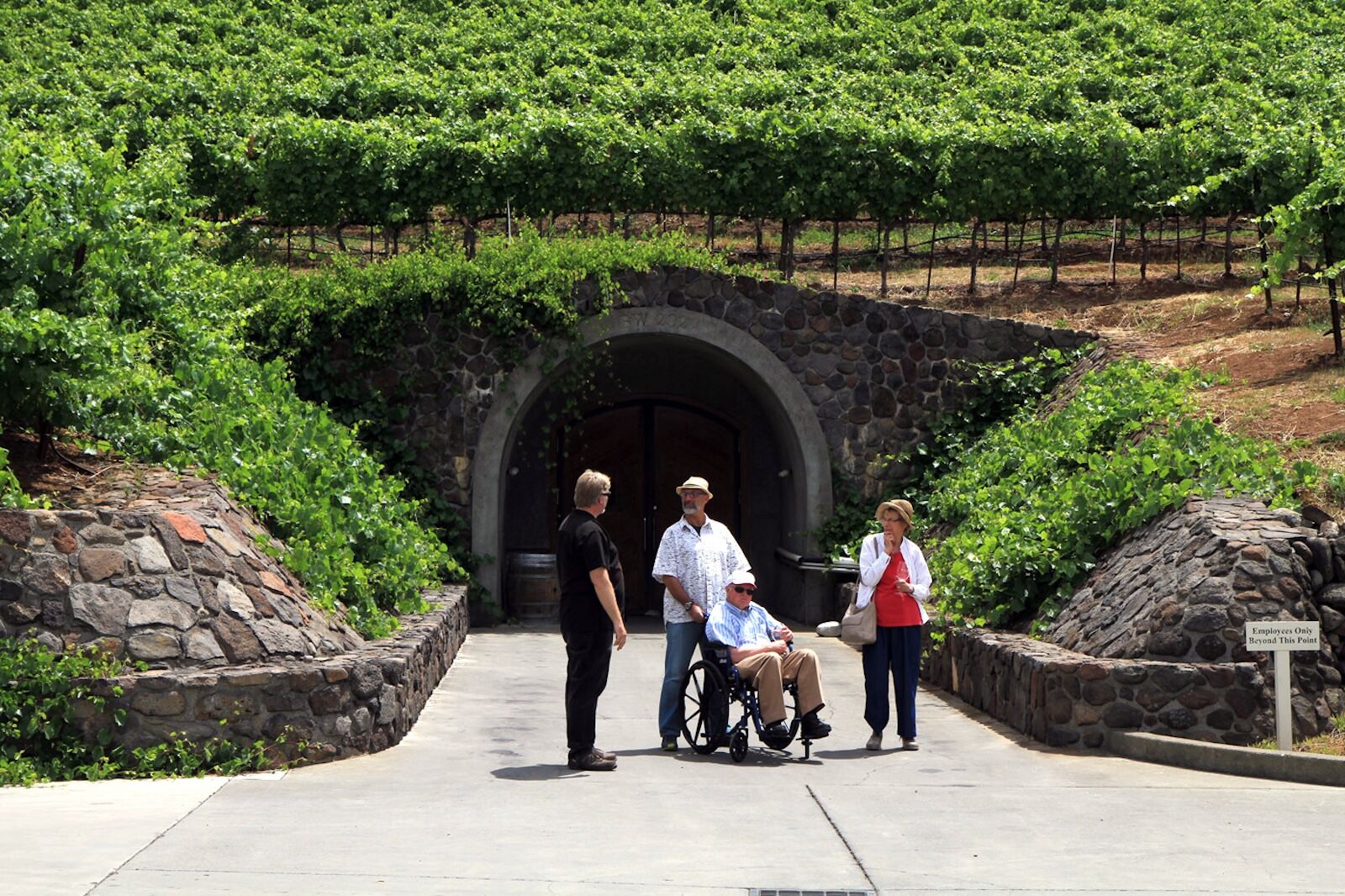
Photo: Tapooz Travel
Tapooz Travel, one of the most recommended and trusted accessible travel companies led by Laurent Roffé and his wife Aïcha Nyström, is fully aware of this and creates individualized itineraries that are need specific and completely custom.
Roffé is French and has been a resident of the Bay Area of California since moving there in the 1990s with Nyström. He specializes in accessible kayaking, while Nyström specializes in accessible skiing for people with visual impairments. Thirteen years ago they created a business plan to offer a small number of accessible excursions — sea kayaking, wine country tours, etc. — around the Bay Area as something to do in retirement.
Fast forward to today, and Tapooz is a full-fledged travel company that’s well recognized for tours in 30 destinations around the world that are custom designed for each traveler’s needs. Tapooz focuses on individual trips, but also facilitates group trips or trips where only part of the group requires assistance — whether that’s traveling with specialized medical gear to a foreign country or creating an itinerary around specific mobility issues.
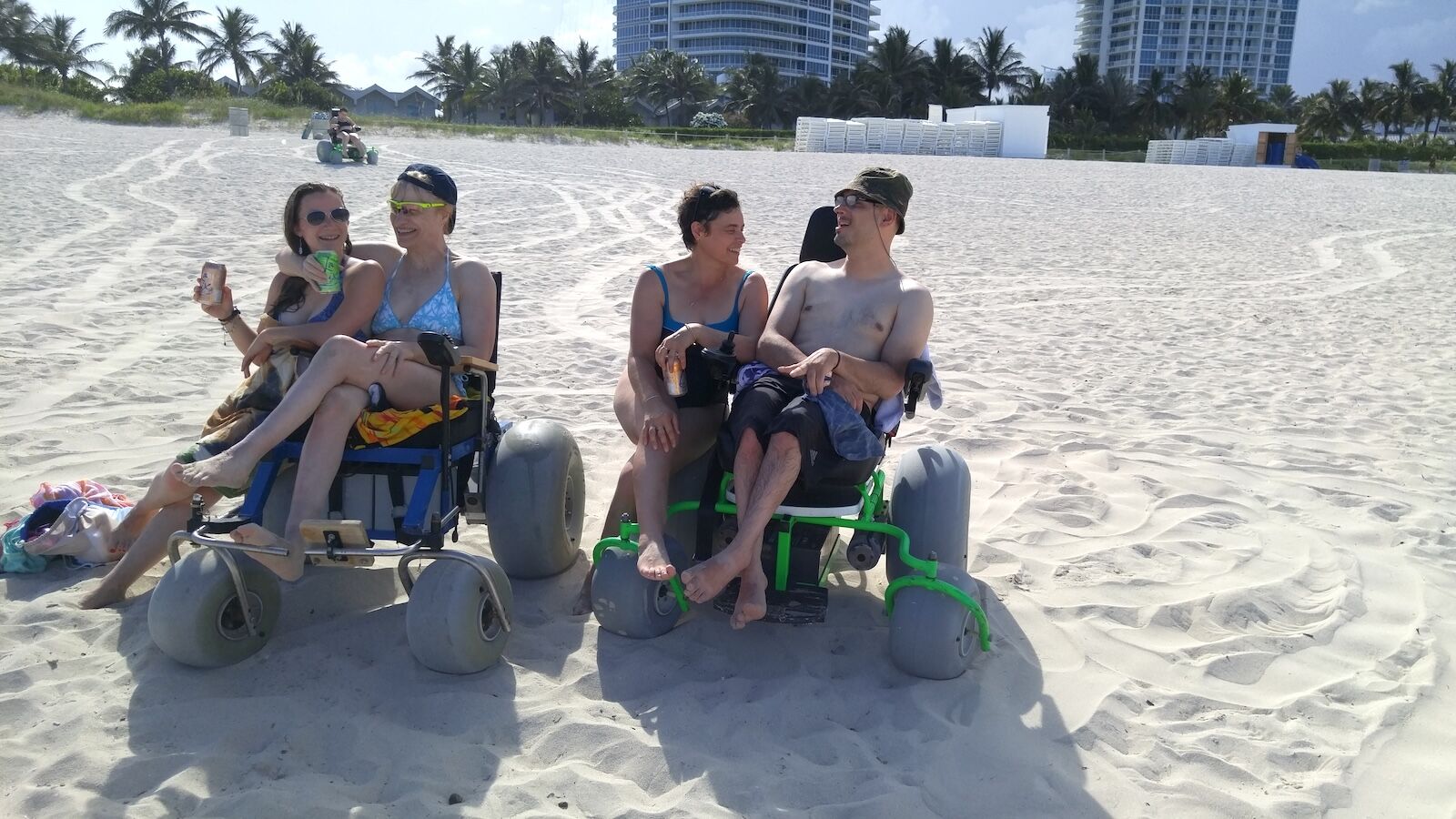
Photo: Tapooz Travel
“Right away when we said that we have an accessible travel company, it’s like the floodgates opened and never closed,” Roffé says over a call. “Very naively, we didn’t know there was such a demand for accessible travel, and that demand became more and more.”
It’s a demand that will only continue to grow as populations age, considering as people get older they naturally need more assistance. Roffé also has a travel accessibility consulting company, Accessio Consulting, focused on business travel, and has a list of other trusted accessible travel planners if it’s decided that a particular trip can’t be done with Tapooz for any reason.
The importance of first-hand vetting in accessible travel
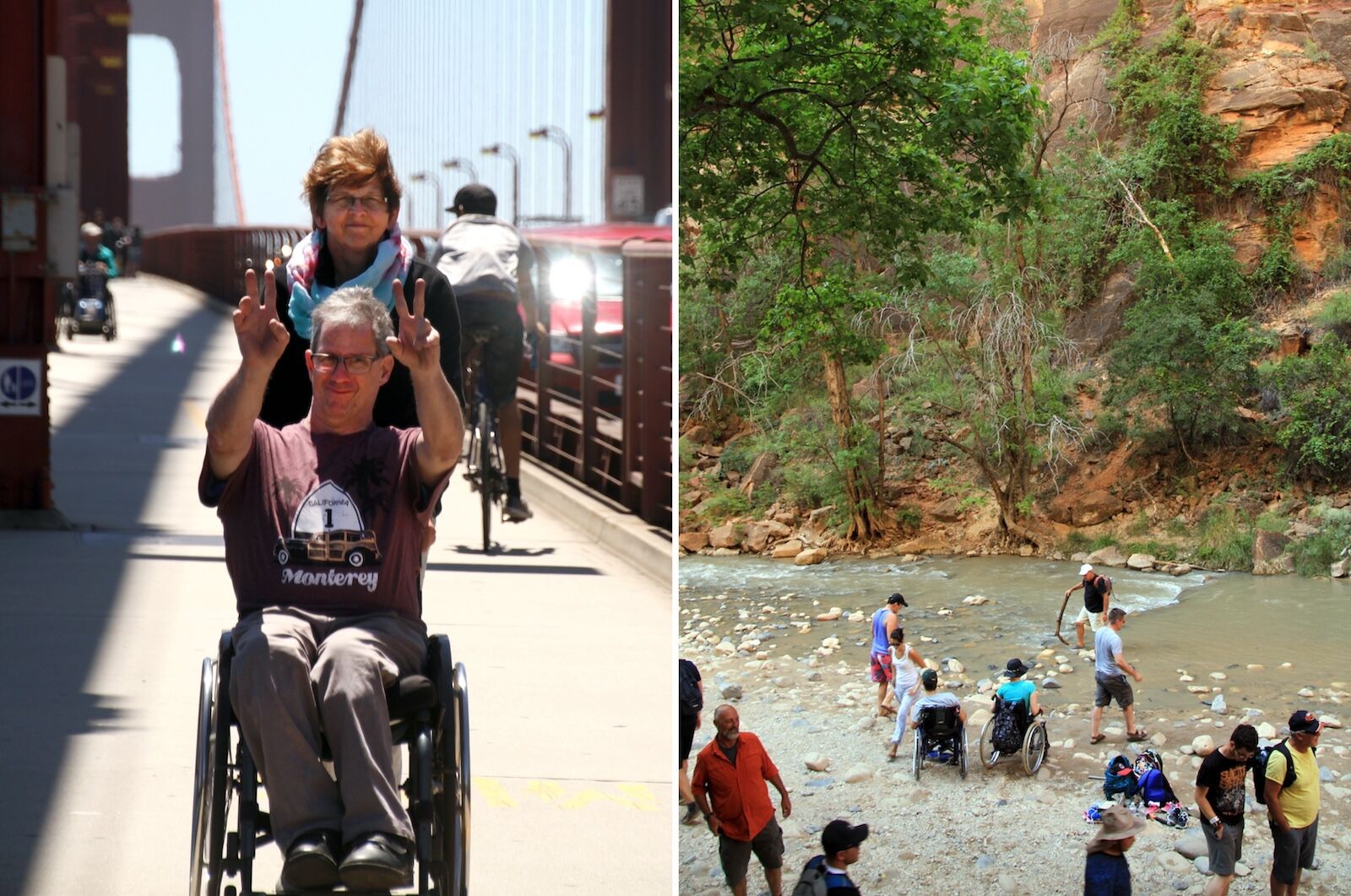
Photo: Tapooz Travel
It’s one thing for a hotel or attraction to state that it follows accessibility guidelines and regulations. Specific details, however, take seeing something first-hand. Tapooz personally vets the entire travel network — from the transportation options, to the hotels, to the equipment onsite, and more — for each destination it offers.
Growth is slower this way, but it’s a key differentiator when choosing an accessible travel company. Only through seeing something for oneself and building one-on-one relationships can a travel company guarantee that traveler needs are met. For Roffé, that meant an early focus on the Bay Area and France, and then expanding through connections and his own travels to Canada, India, Portugal, Scandinavia, and Morocco.
After someone reaches out to Tapooz, trip planning starts with a questionnaire and a Zoom call about what type of experience the guest wants to have on a trip. Maybe it’s cultural and centered around museums and music, or perhaps food-focused or a wine region tour. For others, adventure and high thrills are top of mind, like adaptive surfing in Santa Cruz or skydiving over Yosemite. From there, the conversation shifts to specific needs to make sure Tapooz can offer the right tools, people, and equipment.
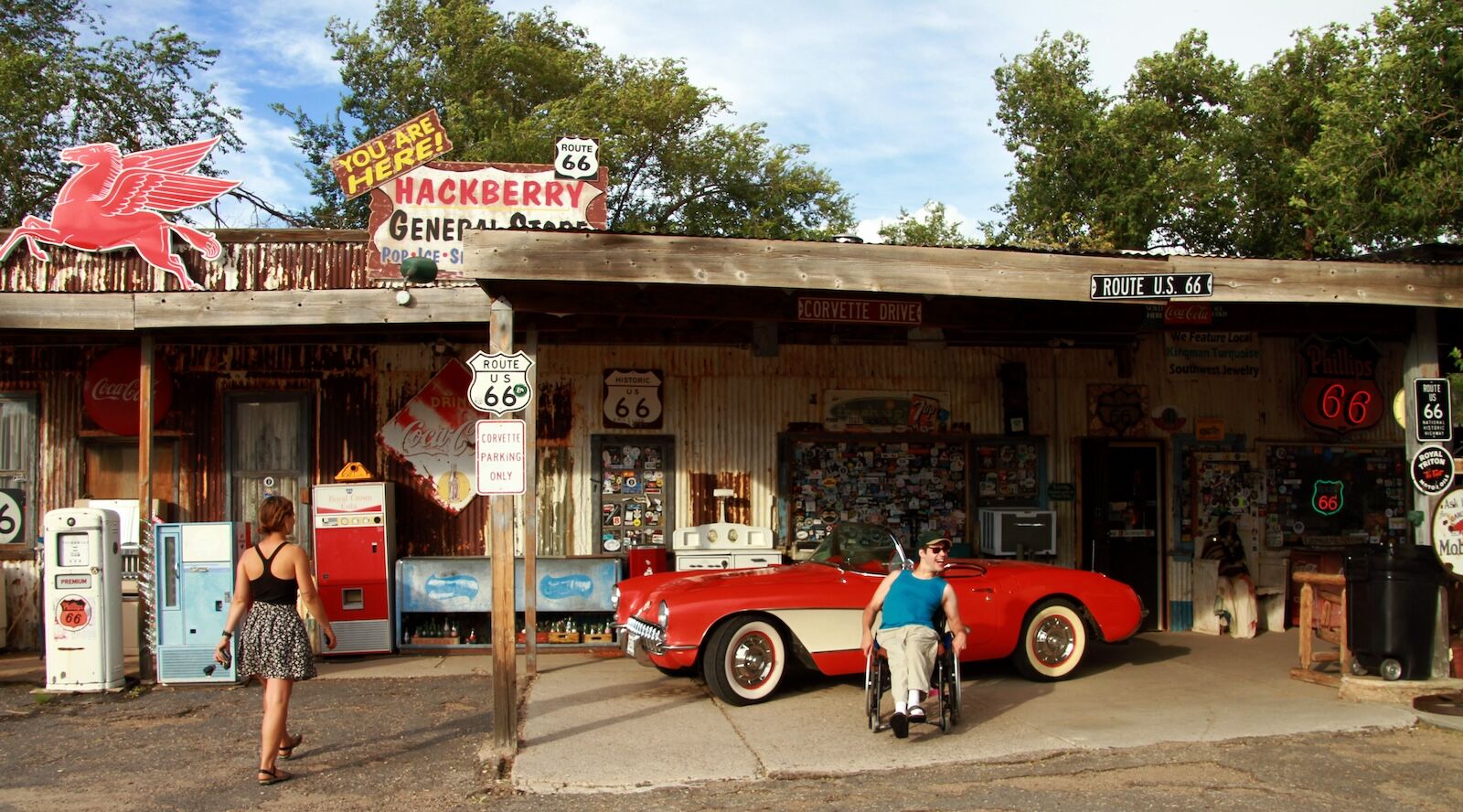
Photo: Tapooz Travel
A loose draft of a travel plan comes from those conversations, which is then refined with the guest to cover any questions and formulate back up plans. It can take as little as a week to create an itinerary from start to finish, or as long as a few months depending on the urgency of travel. The final result of the planning is a complete custom guide with every detail needed, from types of vehicles, to the names of drivers and emergency contacts, to equipment that’ll be delivered to a room at what time, and more.
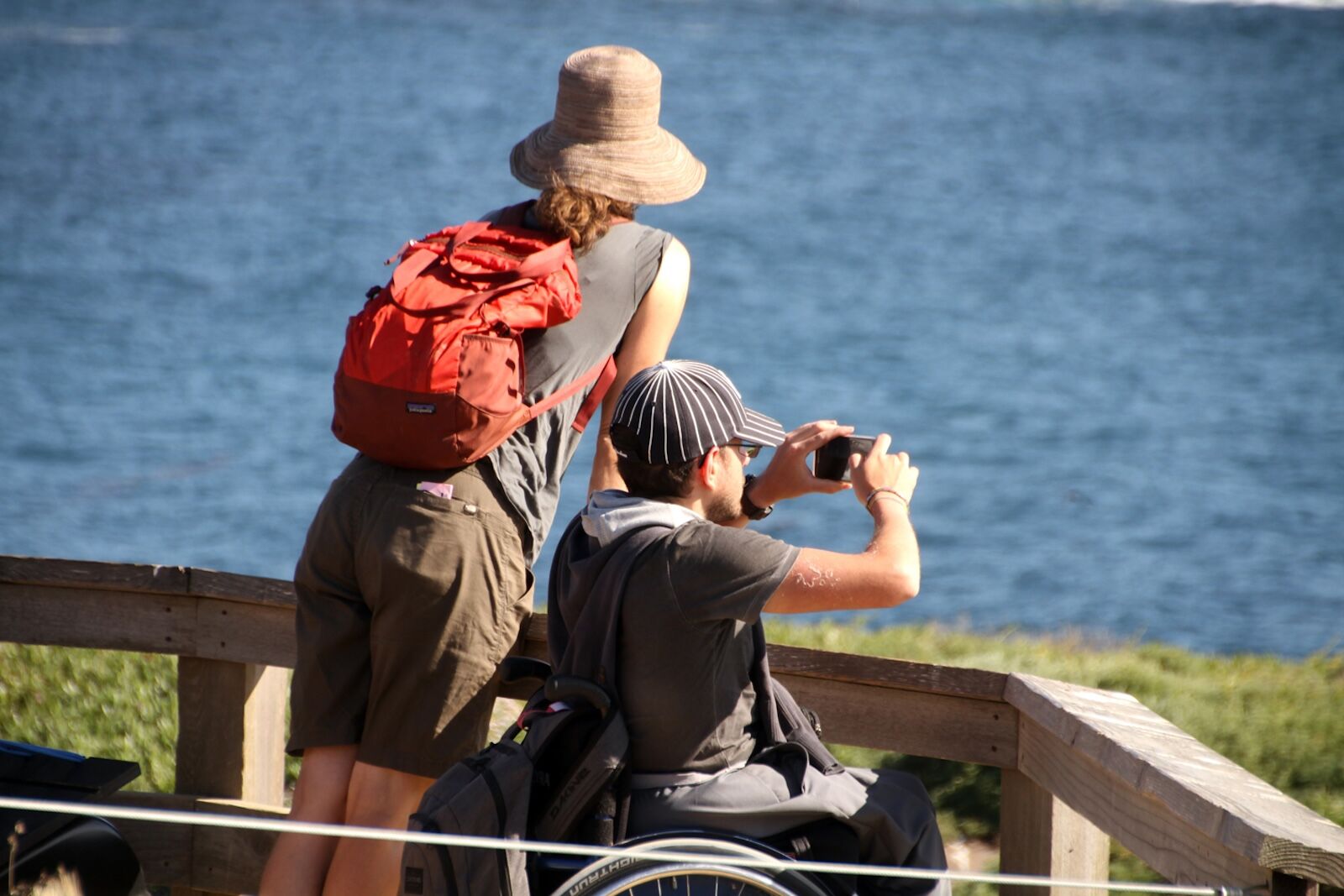
Photo: Tapooz Travel
“Myself, my spouse, my team, we’re very much part of this community,” Roffé says. “So we have a special sensibility to even the terminology that we’re using and the way that we talk with people.”
Mobility is only one aspect that needs to be covered. Others include how well a person can communicate verbally, for example, or access to certain types of doctors or medical equipment. Entirely seperate acommodation needs for a travel companion must also be considered.
“We’re very respectful, and we ask the hard questions when they need to be asked, because it goes into equipment or another need,” Roffé says. “A lot of that has to do with the guests feeling very comfortable sharing with us.”
The need for specifics guided by an agent
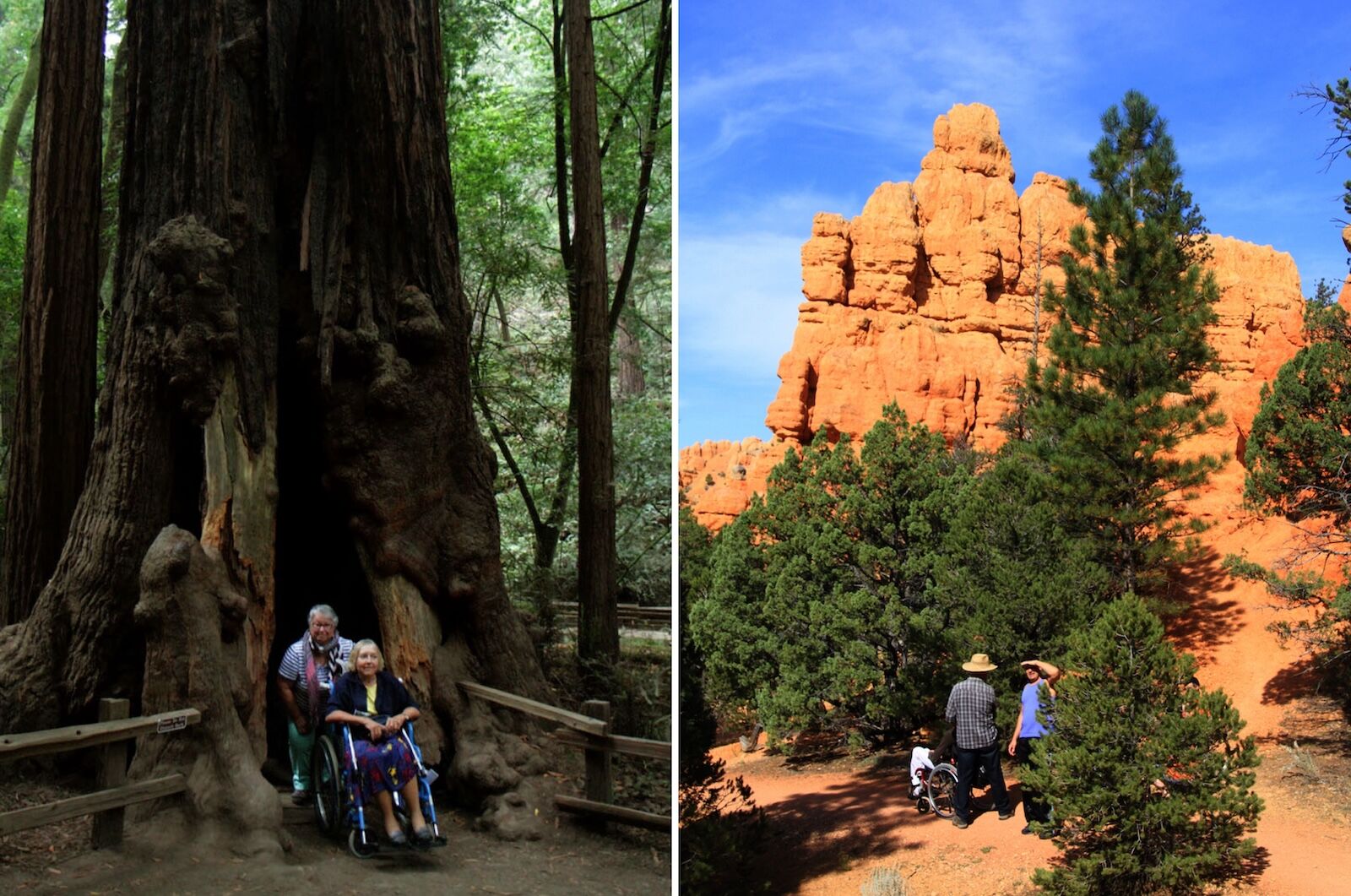
Photo: Tapooz Travel
The individualized nature of accessible travel and the need to work through a dedicated travel agent inherently raises the cost of each trip. AI travel tools, like Matador Network’s GuideGeek, are getting better every day at creating travel plans tailored to a traveler’s interests. AI has not, however, reached a point where it can answer the most specific needs, like a particular hotel bathroom’s accessibility or the height of the beds or the varied surfaces on the sidewalk when you exit a building.
Roffé gives an example of someone who uses a wheelchair who wanted to go down Bryce Canyon. In addition to the exact tested route, Tapooz worked with providers in the area for the exact types of straps needed to get the guest’s specific wheelchair back to the top.
The costs that go into an accessible travel agent’s fee go into providing the granular details “that AI cannot address all of — right now,” Roffé says.
Travel risk tolerance and the importance of being prepared
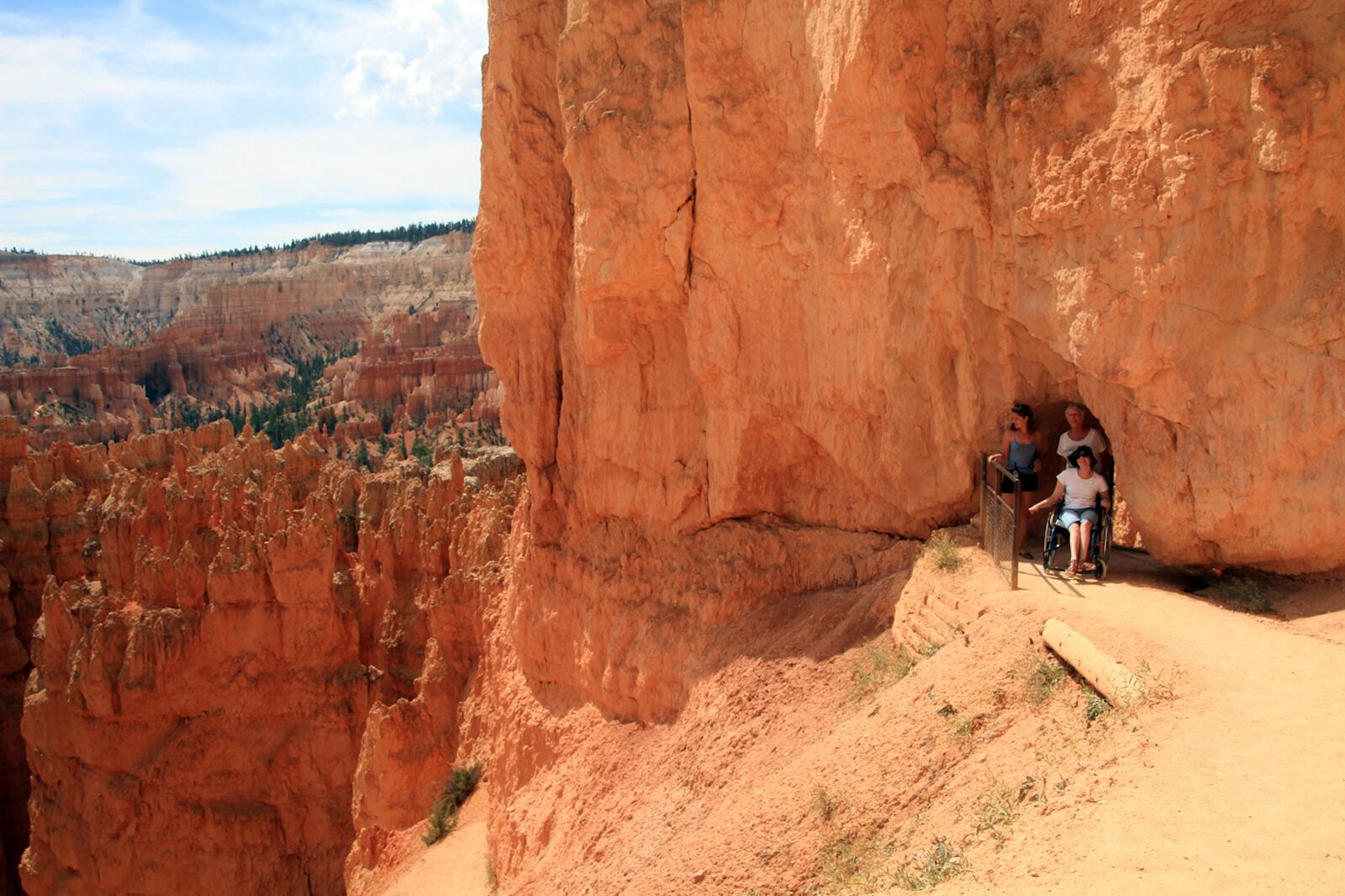
Photo: Tapooz Travel
It’s not as easy for accessible travel itineraries to shift, “so we build a lot of redundancy, a lot of plan B, a lot of ‘what if’ scenarios,” Roffé says. The human connection to people at the hotels and experiences is important as well, to ensure there’s an immediate on-the-ground contact who can responsibly handle any issues that come up.
When a Tapooz traveler had a head injury on their scooter in Scandinavia, for example, Tapooz was able to immediately have a team member meet with them, find a doctor in a remote area, find a hotel that could install a special bed, and help deal with the insurance claim requirements.
Anyone who has traveled knows that things happen and there’s a certain level of flexibility needed. With accessible travel, that could mean a lost battery or broken wheelchair. It can also mean a medical emergency. It’s important to match the risk tolerance with each specific guest, and to have all risks clearly communicated ahead of time.
Tapooz doesn’t offer travel insurance directly, though all of their guests use a travel insurance company and Tapooz is happy to make recommendations.
This story was inspired by a reader question solicited through the Matador newsletter. Have a travel question you’d like the Matador Network team to look into? Send us an email at nick.h@matadornetwork.com.